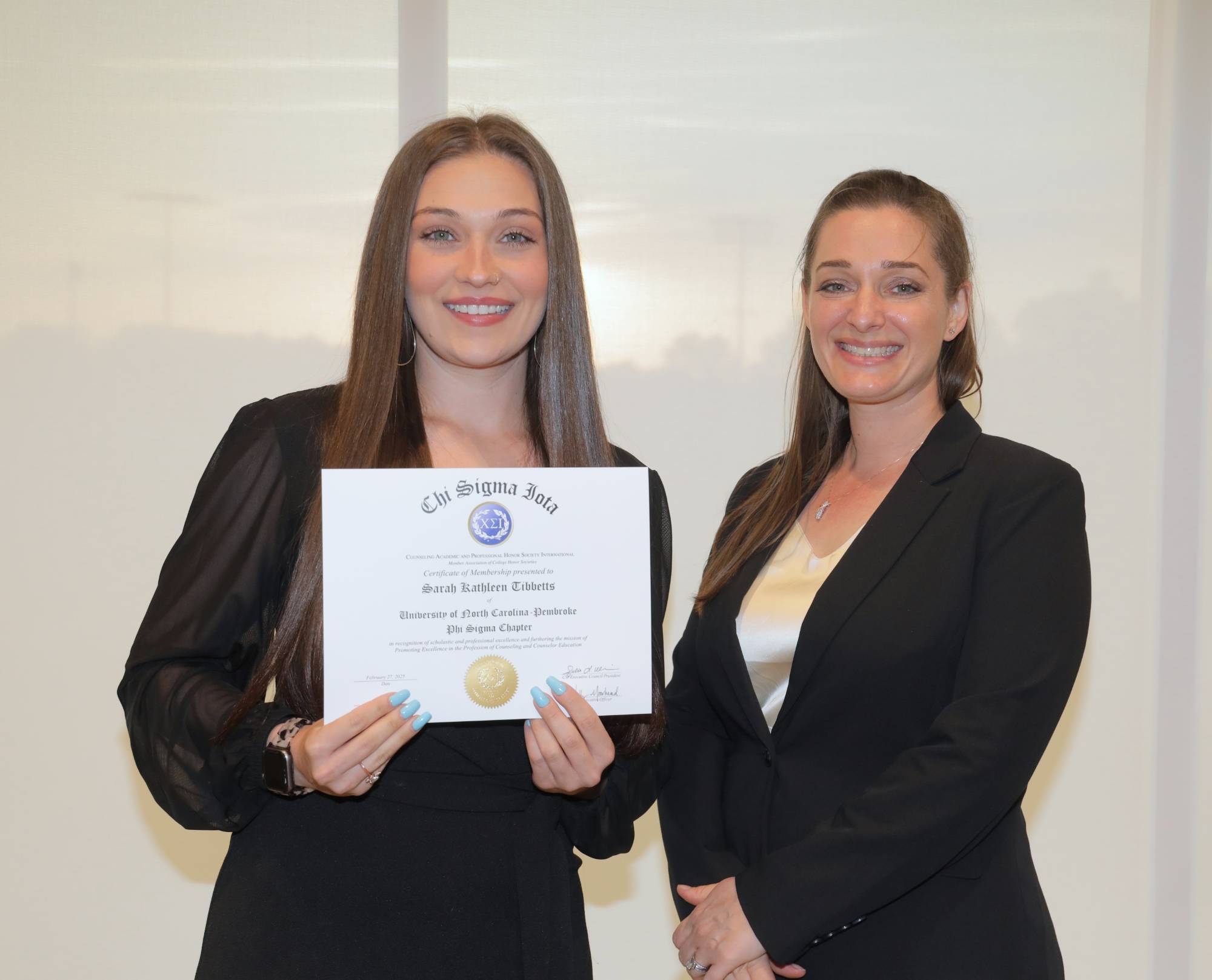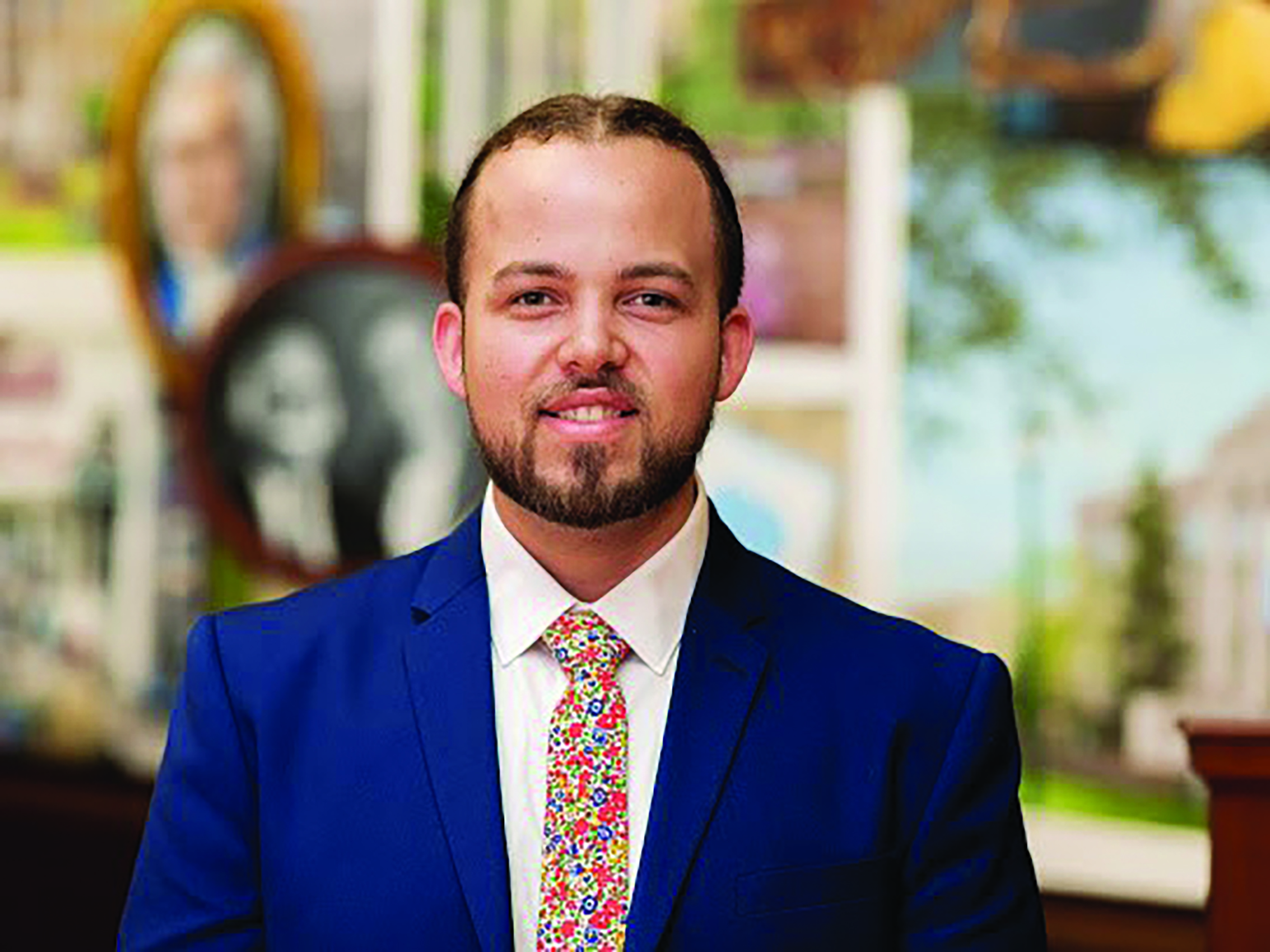Don't let the distance hold you back. You can earn your MAEd in Professional School Counseling from UNCP in Wilmington, hosted at Cape Fear Community College's North Campus. UNCP also offers the MAEd in Clinical Mental Health Counseling at this location. Same UNCP program, same UNCP support, closer to home.

Professional School Counseling
Discover your path to making a lasting impact in schools and communities through UNC Pembroke's Professional School Counseling programs. Whether you're seeking a master's degree or certification, our CACREP-accredited programs prepare you to become a compassionate, effective school counselor in K-12 settings. We offer classes at UNCP and Cape Fear. With flexible coursework, expert faculty and a strong focus on real-world experience, UNCP offers the training and support you need to launch or advance your career in school counseling. Start your journey toward helping students thrive — right here at UNCP.
Degrees

| Semester | Application Deadline | Classes Start |
|---|---|---|
| Summer I, '26 | Feb. 1, 2026 | May 26, 2026 |
| Fall, '26 | Feb. 1, 2026 | Aug. 17, 2026 |
From Classroom to Counseling Office
With the MAEd in Professional School Counseling program, you'll gain the skills to guide K–12 students toward academic, emotional and career success. You'll learn how to build strong relationships, lead school-wide programs and be a trusted resource for students, families and teachers.
Through this 60-credit program, you'll:
- Learn core counseling skills like assessment, group counseling and ethics
- Understand child development, mental health issues and college/career readiness
- Practice individual and group counseling in real K–12 school settings
- Design and deliver comprehensive school counseling programs
- Build skills in crisis response, consultation and advocacy
- Promote social/emotional, academic and career development through methods such as advocacy, use of evidence-based practices and data collection
- Practice in real-world settings through a 100-hour practicum and two 300-hour internships
Most classes are held in the evenings or summer. Formats include face-to-face, hybrid and online.
This program is nationally and state accredited, so you can be confident your degree will prepare you for licensure and professional recognition.
- Accredited by CACREP (Council for Accreditation of Counseling and Related Educational Programs)
- Approved by CAEP (Council for Accreditation of Educator Preparation)
- Recognized by NCDPI (North Carolina Department of Public Instruction) for school counselor licensure
The curriculum is shaped by the ethical codes and best practices of:
These accreditations and affiliations mean your coursework meets high national standards and prepares you to become a licensed K–12 school counselor in North Carolina.
We accept applications for summer and fall only. Reviews start February 1 and continue on a rolling basis, until programs are full.
In addition to your application, fee and transcripts, you'll also need to:
- Have a minimum undergraduate GPA of 2.7
- Submit a personal essay about why you're applying, relevant experiences and your career goals relevant to professional school counseling
- Provide three professional references (such as former professors or supervisors)
- Submit a resume or CV
- Complete a brief electronic supplemental skills survey
- Complete an interview with program faculty (typically starts around February 15)
Dates:
- Monday, February 16 at 12pm
- Monday February 23 at 6pm
- Tuesday, March 10 at 6pm
- Monday, March 23, 2026 at 12pm
- Monday, April 6, 2026 at 6pm
- Monday, April 20, 2026 at 12pm
Come learn more about our School Counseling master's program.
Post-Master’s Certificate in Professional School Counseling
Already have a master’s degree in counseling? The Post Master’s Certificate for Licensure in Professional School Counseling provides coursework required for school counselor licensure. Candidates for this certificate program must already possess a 48-hour graduate degree in one of the following counseling areas: addictions; career; clinical mental health; clinical rehabilitation; college counseling and student affairs; marriage, couple and family counseling; or rehabilitation.
Take courses in topics like social justice and career and college readiness counseling. You’ll also complete supervised practicum and internship experiences. The program uses a mix of online and hybrid classes, and must be finished within three years.

Join a Counseling Honor Society


Studying Near Wilmington?

Beyond Graduation

UNCP was pivotal in me gaining the confidence to continue my education and pursue a doctorate. I was able to work closely with the counseling faculty to become a better student, counselor and person. My classmates and the diverse backgrounds that we came from made the experience all the more enriching, adding essential perspectives to class discussions and driving me to challenge myself.
Harley Locklear
Professional School CounselingCommon Careers
- K-12 School Counselor
- College and Career Readiness Counselor
- Academic Advisor
- Crisis Response Counselor
- Student Success Coordinator

Frequently Asked Questions
Professional school counselors help students thrive in school and in life. They support academic success, social-emotional development and career readiness for all students. From kindergarten through high school. School counselors work with individuals, classrooms and administrators.
Counseling in general can sometimes be confused with related fields like psychology or social work. While these professions share some similarities, each has a distinct approach:
- Counselors focus on strengths, personal growth and wellness.
- Psychologists often diagnose and treat mental health conditions using a medical model.
- Social workers connect people with resources and support systems in families, schools, and communities.
Working full time is hard but possible. If you're studying school counseling, you can apply for a provisional license after 24 credit hours and may work full time as a counselor during your placement.
Some keys to success include:
- Dedication
- Motivation
- Organization
- Family/employer support
- After you finish 8 of the 9 core courses, you can apply for practicum.
- Apply the semester before you wish to begin on site.
- The Professional School Counseling Field Placement Coordinator will ask in the application in which county/school you wish to serve and will coordinate that process with human resources.
- All counseling students must pass the Counselor Preparation Comprehensive Exam (CPCE) in order to progress to an internship. Students should compile resources from all core courses in preparation for this exam.
- Professional School Counseling students must take the Praxis II in order to earn an Licensed School Counselor, K-12 (LSC) under the North Carolina Department of Public Instruction and must score at least 159. Schedule your Praxis here.
- Apply for your school counseling specialty license here.
The Department of Counseling typically hires 4 to 5 student workers each academic year. These assistantships offer faculty mentoring, research opportunities and other professional development opportunities. A number of our counseling students also work across campus. They find various positions with offices such as The Graduate School and the Center for Student Success.
Have questions?
or call us at 910.521.6271
Director of Professional School Counseling

Jonathan Ricks
Associate Professor of Counseling and Director of Professional School Counseling
jonathan.ricks@uncp.edu910.775.4041